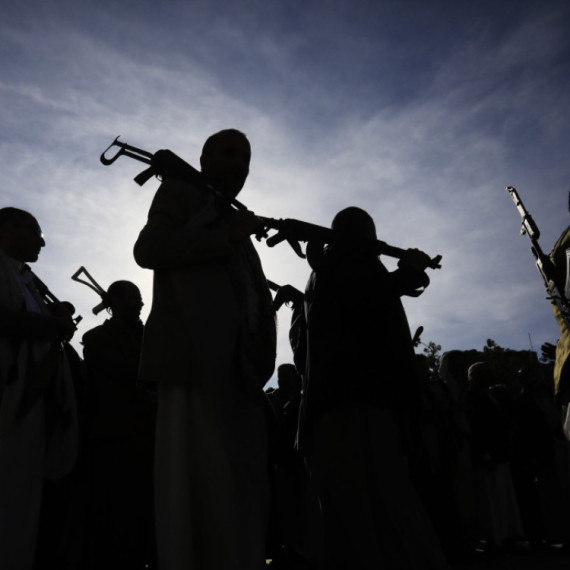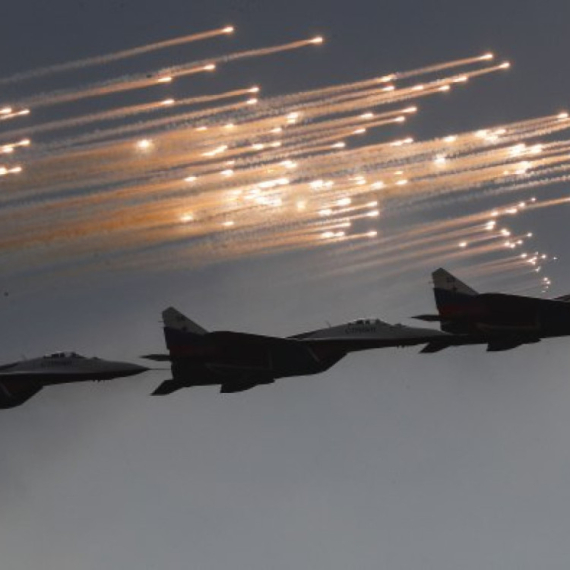Fate of nearly 12,000 missing in Balkans still unknown
The International Committee of the Red Cross has said that families of over 11,800 missing persons in the former Yugoslavia wars are still waiting for answers.
Friday, 30.08.2013.
16:45

BELGRADE The International Committee of the Red Cross has said that families of over 11,800 missing persons in the former Yugoslavia wars are still waiting for answers. One-third of the disappeared, totaling 11,859 in number, are Serbs. Fate of nearly 12,000 missing in Balkans still unknown Representatives of the Coordination of Serb Associations of Families of Missing Persons from the Territory of Former Yugoslavia Friday called for opening all archives, launching serious and efficient investigations and prosecuting the organizers and perpetrators of war crimes. At a press conference held on the occasion of the International Day of the Disappeared, August 30, they demanded that everything concerning the allegations about trafficking in organs taken from over 350 Serbs kidnapped and missing in Kosovo during the 1998-99 Kosovo conflict be effectively investigated. President of the Serbian government's Commission for Missing Persons Veljko Odalovic said that Amnesty International “has finally opened its heart” and forwarded to the UN Security Council a document containing records of testimonies by families of Serb victims in Kosovo. He is hopeful that now, 18 years after the end of all conflicts in the former Yugoslavia, a joint register of all the missing persons in the region will finally be compiled. President of the Coordination of Serb Associations of Families of Missing Persons from the Territory of Former Yugoslavia Natasa Scepanovic said that every year, there are fewer and fewer new identifications and warned that at such a pace of developments, the process could take 30 years to complete. “We lack information about mass and individual graves, exhumations are slow, identifications take a lot of time to commence, and some of them are inaccurate,” Scepanovic said, adding that only 20 missing persons were identified over the past year. According to Scepanovic, the reason is lack of political will among the governments in the region, violation of agreements that have been signed and unwillingness to prosecute those responsible who hold positions of considerable political influence. According to the Serbian government's Commission for Missing Persons, we are still waiting for answers about the fate of about 3,500 missing Serbs. A total of 1,938 of them disappeared in Croatia, more than of them 530 in Kosovo and the rest went missing in Bosnia-Herzegovina. Chairman of the Board of the Coordination of Serb Associations of Families of Missing Persons from the Territory of Former Yugoslavia Dragan Pjevac stated that a total of 306 human remains are waiting to be identified in Croatia. He pointed out about 270 known graves have not yet been excavated. To commemorate the International Day of the Disappeared, a delegation of the Coordination of Serb Associations laid a wreath at a memorial erected in the Tasmajdan park in downtown Belgrade in remembrance of all Serbs killed during the 1991-95 former Yugoslavia wars. (Beta) Tanjug
Fate of nearly 12,000 missing in Balkans still unknown
Representatives of the Coordination of Serb Associations of Families of Missing Persons from the Territory of Former Yugoslavia Friday called for opening all archives, launching serious and efficient investigations and prosecuting the organizers and perpetrators of war crimes.At a press conference held on the occasion of the International Day of the Disappeared, August 30, they demanded that everything concerning the allegations about trafficking in organs taken from over 350 Serbs kidnapped and missing in Kosovo during the 1998-99 Kosovo conflict be effectively investigated.
President of the Serbian government's Commission for Missing Persons Veljko Odalović said that Amnesty International “has finally opened its heart” and forwarded to the UN Security Council a document containing records of testimonies by families of Serb victims in Kosovo.
He is hopeful that now, 18 years after the end of all conflicts in the former Yugoslavia, a joint register of all the missing persons in the region will finally be compiled.
President of the Coordination of Serb Associations of Families of Missing Persons from the Territory of Former Yugoslavia Nataša Šćepanović said that every year, there are fewer and fewer new identifications and warned that at such a pace of developments, the process could take 30 years to complete.
“We lack information about mass and individual graves, exhumations are slow, identifications take a lot of time to commence, and some of them are inaccurate,” Šćepanović said, adding that only 20 missing persons were identified over the past year.
According to Šćepanović, the reason is lack of political will among the governments in the region, violation of agreements that have been signed and unwillingness to prosecute those responsible who hold positions of considerable political influence.
According to the Serbian government's Commission for Missing Persons, we are still waiting for answers about the fate of about 3,500 missing Serbs. A total of 1,938 of them disappeared in Croatia, more than of them 530 in Kosovo and the rest went missing in Bosnia-Herzegovina.
Chairman of the Board of the Coordination of Serb Associations of Families of Missing Persons from the Territory of Former Yugoslavia Dragan Pjevac stated that a total of 306 human remains are waiting to be identified in Croatia.
He pointed out about 270 known graves have not yet been excavated.
To commemorate the International Day of the Disappeared, a delegation of the Coordination of Serb Associations laid a wreath at a memorial erected in the Tasmajdan park in downtown Belgrade in remembrance of all Serbs killed during the 1991-95 former Yugoslavia wars.
















Komentari 11
Pogledaj komentare